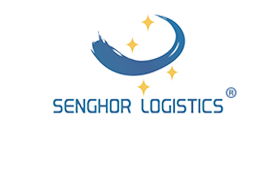What fees are required for customs clearance in Canada?
One of the key components of the import process for businesses and individuals importing goods to Canada is the various fees associated with customs clearance. These fees can vary depending on the type of goods being imported, the value, and the specific services required. Senghor Logistics will explain the common fees associated with customs clearance in Canada.
Tariffs
Definition: Tariffs are taxes levied by customs on imported goods based on the type of goods, origin and other factors, and the tax rate varies according to different goods.
Calculation method: Generally, it is calculated by multiplying the CIF price of the goods by the corresponding tariff rate. For example, if the CIF price of a batch of goods is 1,000 Canadian dollars and the tariff rate is 10%, a tariff of 100 Canadian dollars must be paid.
Goods and Services Tax (GST) and Provincial Sales Tax (PST)
In addition to tariffs, imported goods are subject to a Goods and Services Tax (GST), currently 5%. Depending on the province, a Provincial Sales Tax (PST) or a Comprehensive Sales Tax (HST) may also be imposed, which combines federal and provincial taxes. For example, Ontario and New Brunswick apply the HST, while British Columbia imposes both the GST and PST separately.
Customs handling fees
Customs broker fees: If the importer entrusts a customs broker to handle customs clearance procedures, the customs broker's service fees must be paid. Customs brokers charge fees based on factors such as the complexity of the goods and the number of customs declaration documents, generally ranging from 100 to 500 Canadian dollars.
Customs inspection fees: If the goods are selected by the customs for inspection, you may need to pay inspection fees. The inspection fee depends on the inspection method and the type of goods. For example, manual inspection charges 50 to 100 Canadian dollars per hour, and X-ray inspection charges 100 to 200 Canadian dollars per time.
Handling Fees
A shipping company or freight forwarder may charge a handling fee for the physical handling of your shipment during the import process. These fees may include the cost of loading, unloading, warehousing, and transportation to a customs facility. Handling fees may vary depending on the size and weight of your shipment and the specific services required.
For example, a bill of lading fee. The bill of lading fee charged by the shipping company or freight forwarder is generally around 50 to 200 Canadian dollars, which is used to provide relevant documents such as the bill of lading for the transportation of goods.
Storage fee: If the goods stay in the port or warehouse for a long time, you may need to pay storage fees. The storage fee is calculated based on the storage time of the goods and the warehouse's charging standards, and may be between 15 Canadian dollars per cubic meter per day.
Demurrage: If the cargo is not picked up within the stipulated time, the shipping line may charge demurrage.
Going through customs in Canada requires being aware of various fees that can affect the total cost of importing goods. To ensure a smooth import process, it is recommended to work with a knowledgeable freight forwarder or customs broker and stay up to date with the latest regulations and fees. This way, you can better manage costs and avoid unexpected expenses during the import of goods into Canada.
Senghor Logistics has extensive experience in serving Canadian customers, shipping from China to Toronto, Vancouver, Edmonton, Montreal, etc. in Canada, and is very familiar with customs clearance and delivery abroad. Our company will inform you of the possibility of all possible costs in advance in the quotation, helping our customers to make a relatively accurate budget and avoid losses.
Post time: Dec-13-2024














